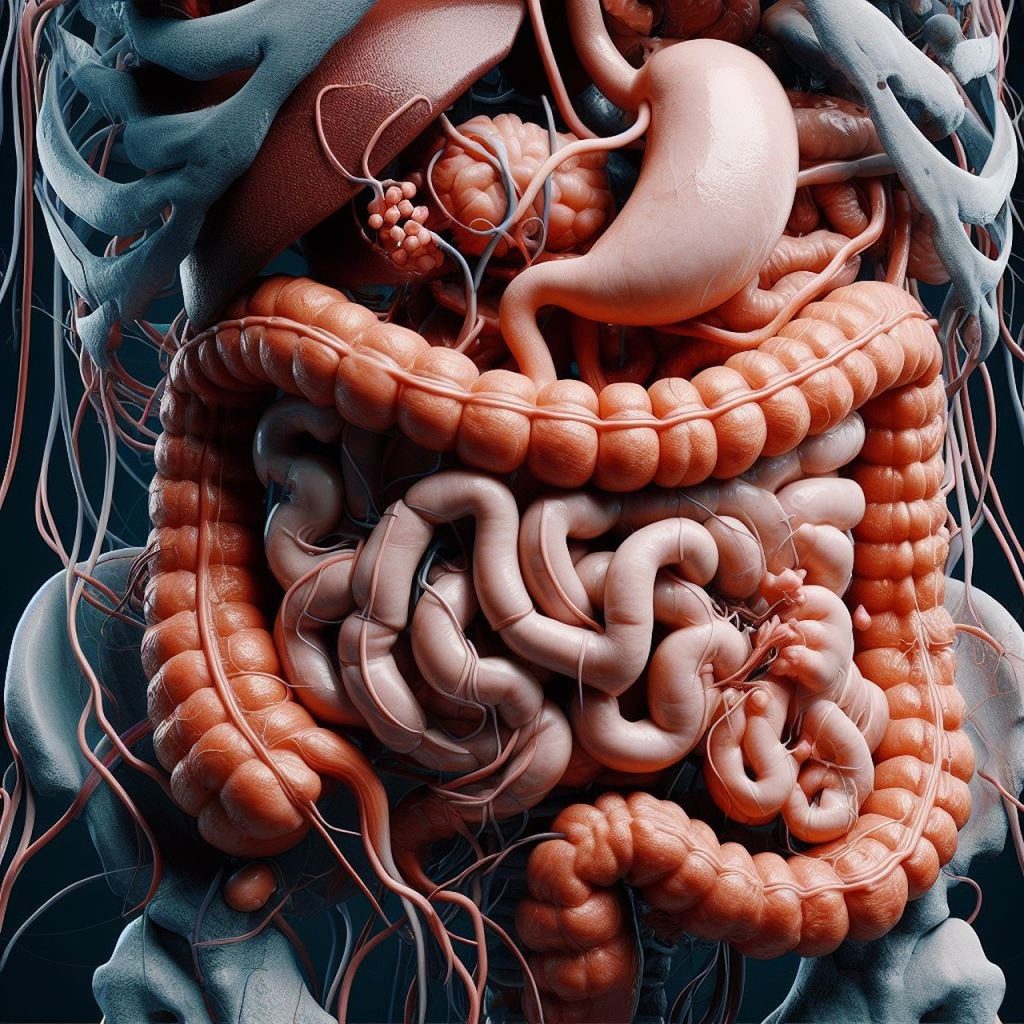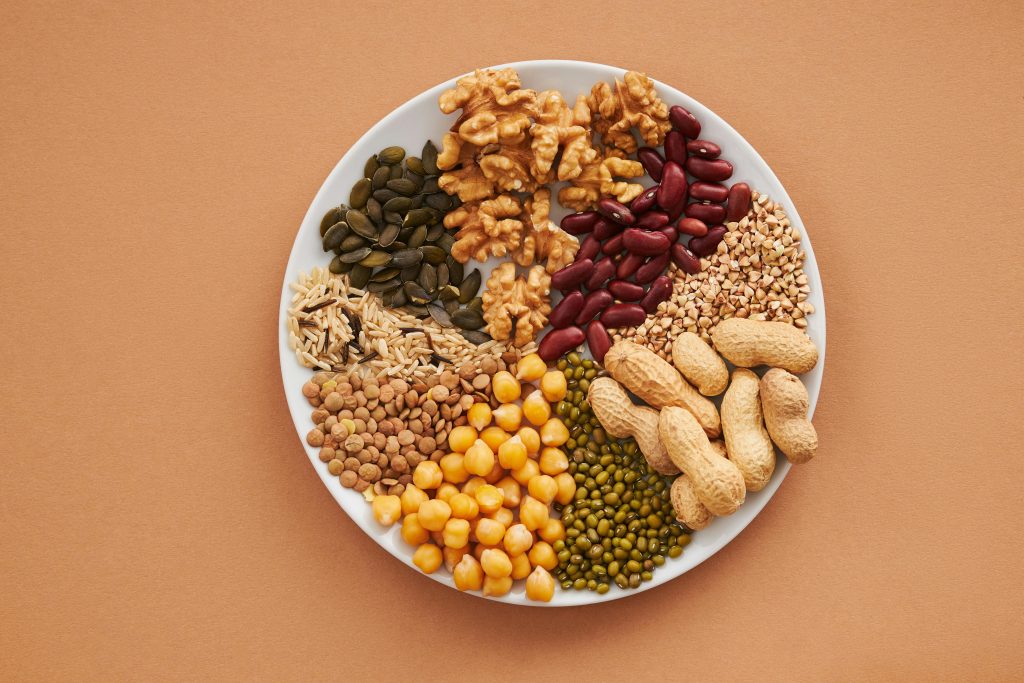Understanding Small Intestinal Bacterial Overgrowth
Have you ever felt bloated, gassy, or had frequent stomach discomfort after eating? If so, you might have encountered a condition known as Small Intestinal Bacterial Overgrowth (SIBO). Although it’s not as widely discussed as other digestive disorders, SIBO affects many people and can cause significant discomfort if left untreated.

What is SIBO?
SIBO stands for Small Intestinal Bacterial Overgrowth. This condition happens when too many bacteria grow in the small intestine, where they shouldn’t normally be. The small intestine is responsible for absorbing nutrients from food, but when the balance of bacteria is disturbed, it can cause various digestive issues.
Our digestive system is full of bacteria, but these bacteria are typically more concentrated in the large intestine (or colon). In a healthy gut, the small intestine contains relatively fewer bacteria. However, in people with SIBO, the bacteria that normally reside in the large intestine can move into the small intestine, leading to an overgrowth. This overgrowth can interfere with digestion and cause discomfort.
There are two main types of SIBO:
Hydrogen-dominant SIBO: Characterised by the production of hydrogen gas by the bacteria, which can lead to symptoms such as bloating, abdominal discomfort, and diarrhoea.
Methane-dominant SIBO: Associated with the production of methane gas, which is often linked to constipation and more severe bloating (Pimentel et al., 2000).
What Causes SIBO?
There are several factors that can contribute to the development of SIBO. Here are a few of the most common ones:
Impaired Gut Motility: The small intestine has a natural rhythm that helps move food and bacteria along. When this movement is slowed down (a condition called motility issues), bacteria can stay in one place longer than they should, leading to an overgrowth (Cammarota et al., 2015).
Stomach Acid Problems: Stomach acid plays an important role in killing harmful bacteria. If your stomach doesn’t produce enough acid (a condition called hypochlorhydria), bacteria that should be killed in the stomach can survive and travel into the small intestine (Ghoshal et al., 2016).
Anatomical Changes: Sometimes, surgeries or structural issues in the digestive tract (like intestinal strictures, surgery or diverticula) can create areas where bacteria can grow unchecked (Pimentel et al., 2000).
Dysfunction of the Ileocecal Valve: The ileocecal valve is a one-way valve that separates the small intestine from the large intestine. If this valve is malfunctioning, it can allow bacteria from the large intestine to enter the small intestine, contributing to an overgrowth of bacteria (Pimentel et al., 2000).
Weak Immune System: Conditions that weaken your immune system, such as diabetes or HIV, can also make it easier for bacteria to thrive in the small intestine (Vasant et al., 2018).
Symptoms of SIBO
People with SIBO often experience a range of uncomfortable symptoms, including:

Bloating and Gas: This is the most common symptom of SIBO. The bacteria in your small intestine ferment food that hasn’t been properly digested, leading to excess gas and bloating.
Abdominal Pain or Discomfort: SIBO can cause cramps or a general feeling of discomfort in the stomach, especially after eating.
Diarrhoea or Constipation: Depending on the type of bacteria involved (hydrogen-producing or methane-producing), SIBO can cause diarrhoea (more common with hydrogen-producing bacteria) or constipation (associated with methane-producing bacteria) (Pimentel et al., 2010).
Nausea: Some people feel nauseous, particularly after meals.
Fatigue and Brain Fog: If SIBO affects nutrient absorption, it can lead to deficiencies, which may cause tiredness and difficulty concentrating (Vasant et al., 2018).
How is SIBO Diagnosed?
Diagnosing SIBO typically involves a breath test. You’ll drink a sugar solution (like glucose or lactulose), and then your breath will be tested at regular intervals. When bacteria ferment the sugar, they produce gases like hydrogen and methane, which are measured in your breath. High levels of these gases can indicate SIBO (Pimentel et al., 2000). This test is available through Plant Nutrition and Naturopathy, so you are interested in taking this test please get in touch.
How is SIBO Treated?
The good news is that SIBO is treatable! Treatment can involve a combination of antibiotics, dietary changes, and sometimes probiotics.
Antibiotics: Antibiotics can used to kill the excessive bacteria in the small intestine (Pimentel et al., 2011). Depending on the type of bacteria, will depend on the type of antibiotic that may also be prescribed, especially if methane-producing bacteria are involved (Pimentel et al., 2010).
Dietary Changes: Diet plays a crucial role in managing SIBO. Many doctors recommend a Low FODMAP diet, which limits certain types of carbohydrates that feed bacteria (Halmos et al., 2014). This diet can help reduce symptoms by starving the bacteria of their food sources. Another option is the Specific Carbohydrate Diet (SCD), which eliminates foods that are hard for your body to digest and that can promote bacterial growth (Goldstein et al., 2007).
Probiotics: After treating the overgrowth, some people find relief by taking probiotics to help restore a healthy balance of bacteria in the gut. However, probiotics should be used with caution in people with active SIBO, as they can sometimes worsen symptoms during the treatment phase (Ghoshal et al., 2016).
Treating Underlying Conditions: Since SIBO often occurs due to an underlying condition (like low stomach acid or motility problems), treating these root causes is important for preventing the condition from returning.
Can SIBO Be Prevented?
While it may not always be preventable, there are steps you can take to reduce your risk:

Eat a balanced, gut-friendly diet: A healthy whole food diet can promote proper digestion and prevent bacterial imbalances.
Avoid unnecessary use of antibiotics: Overuse of antibiotics can disrupt the natural balance of bacteria in the gut, making it easier for bad bacteria to thrive.
Manage underlying conditions: If you have conditions like diabetes or low stomach acid, work with your doctor to manage them effectively.
Small Intestinal Bacterial Overgrowth (SIBO) is a common but often misunderstood digestive disorder that can cause symptoms like bloating, gas, diarrhea, and abdominal pain. While it can be uncomfortable and sometimes tricky to diagnose, there are effective treatments available, including antibiotics, dietary changes, and probiotics.
If you suspect you might have SIBO, it’s important to consult with a healthcare provider or registered clinical nutritionist. They can help you get a proper diagnosis and guide you through a treatment plan that can improve your gut health and overall wellbeing.
References
Cammarota, G., Ianiro, G., & Gasbarrini, A. (2015). The role of small intestinal bacterial overgrowth in gastrointestinal diseases. European Review for Medical and Pharmacological Sciences, 19(3), 301-307.
Ghoshal, U. C., Ghoshal, U., & Das, K. (2016). Role of small intestinal bacterial overgrowth in functional gastrointestinal disorders. Journal of Gastroenterology and Hepatology, 31(7), 1322-1332. https://doi.org/10.1111/jgh.13401
Goldstein, S. J., Kohn, N., & Pimentel, M. (2007). The Specific Carbohydrate Diet (SCD) for small intestinal bacterial overgrowth. Nutrition in Clinical Practice, 22(2), 220-224. https://doi.org/10.1177/011542650702200220
Halmos, E. P., Power, V. A., Shepherd, S. J., et al. (2014). A diet low in FODMAPs reduces symptoms of irritable bowel syndrome. Gastroenterology, 146(1), 67-75. https://doi.org/10.1053/j.gastro.2013.10.012
Pimentel, M., Chang, C., & Chow, E. (2010). Methane-producing bacteria and their role in IBS. The American Journal of Gastroenterology, 105(5), 937-944. https://doi.org/10.1038/ajg.2010.91
Pimentel, M., Chow, E., & Lin, H. (2000). Eradication of small bowel bacterial overgrowth improves symptoms of irritable bowel syndrome. The American Journal of Gastroenterology, 95(2), 350-358. https://doi.org/10.1111/j.1572-0241.2000.01867.x
Vasant, D. H., Abenavoli, L., & Colucci, R. (2018). Small intestinal bacterial overgrowth: Diagnosis and treatment. World Journal of Gastroenterology, 24(17), 2023-2032. https://doi.org/10.3748/wjg.v24.i17.2023
